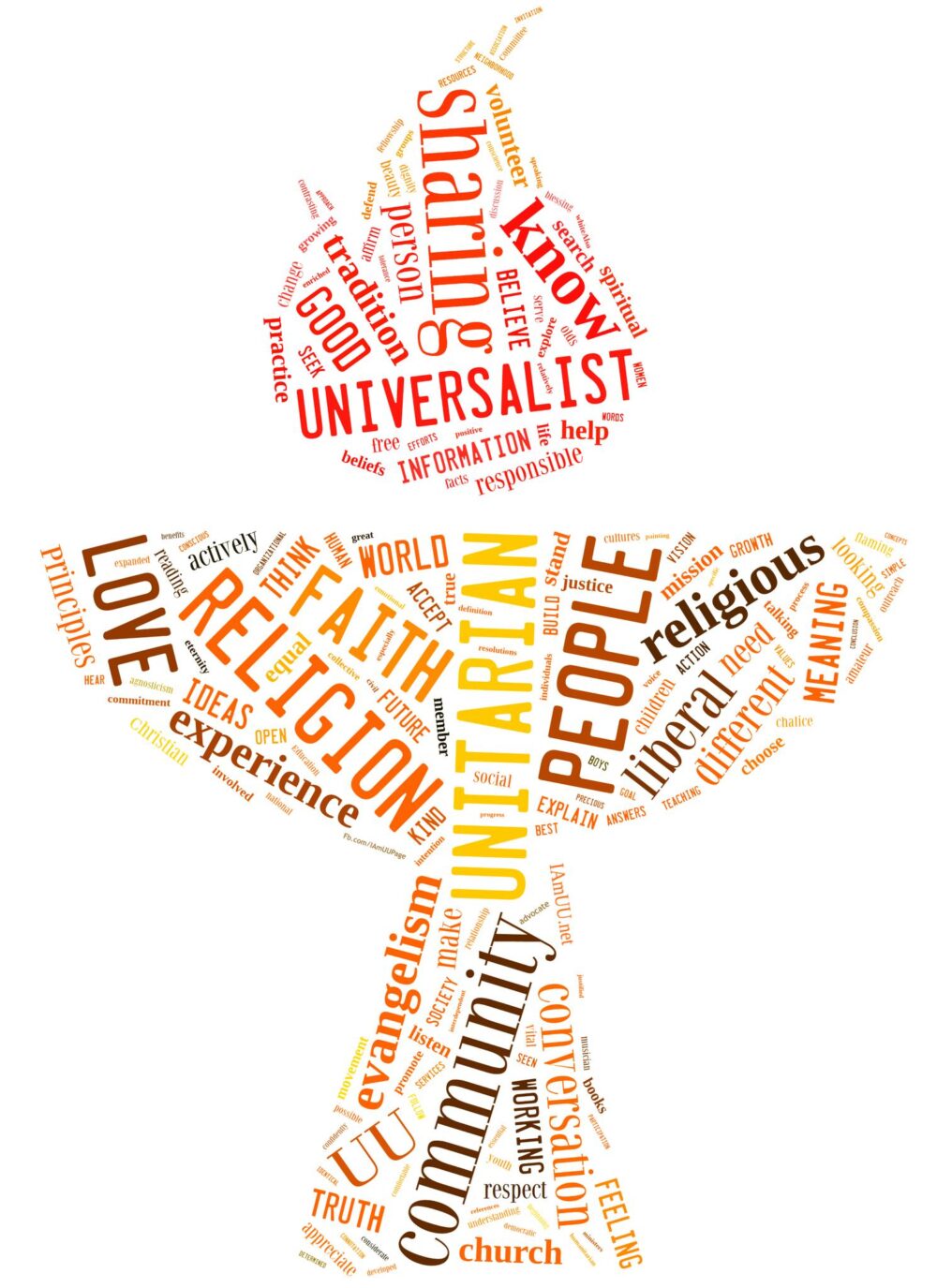 Author: Ian Sachs
Author: Ian Sachs
This was my first ever General Assembly (GA) and I found it interesting and provocative. It made me feel proud to be a UU because of their desire to be inclusive and to be passionate about making the world a better place. An example of wanting to be inclusive was how they had all the presenters introduce themselves so that blind people would not feel left out. All the presenters described themselves physically. In addition to describing themselves physically, the speakers would also mention what ancestral indigenous groups were living on the land before they were taken away by white settlers. As an example, If I were one of the speakers, I would introduce myself as follows: My name is Ian Sachs. I am a cisgender, thin white male using he/him pronouns in my late 70’s, with dark hair and a grey beard and mustache with wire rim glasses and wearing a green and white patterned shirt and khaki pants. I represent Emerson UU Church in Houston, Texas on the ancestral lands of the Karankawa and Akoka peoples. Every speaker did a similar introduction.
Anyone can attend GA, but only delegates can vote. There were 1319 delegates in Pittsburgh and 1274 online attending virtually, a total of 2593 delegates. A delegate is a person who represents a UU church. The number of delegates a church can send to GA depends on the size of the church. Based on our membership, Emerson can have 6 delegates. This year we had only 3, Zena Taylor, Deborah Wotring, and me. You become a delegate by volunteering and then being approved by the Board. A question came up, who decides how a delegate should vote? Should they just vote their conscious or should the congregation tell the delegate how to vote? I learned at GA that some congregations have congregation meetings and vote on how the delegate should vote. Emerson has never told their delegates how to vote.
The new President of the UUA
Another observation was when the online camera panned over the audience, it looked like 90% of the group were old white people. The leaders and speakers were much more diversified by age, race, sexual orientation, and gender identity. Our new president who is beginning a 6-year term, Sophia Betancourt, is a queer woman of color. She is very qualified and respected as our new president.
Issues for Consideration
The main things that required votes were whether to continue discussion of the proposed changes to article II of the UUA bylaws, one business resolution calling for the UUA to divest from all companies that are in any way related to the fossil fuel industry, including banks that do business with those companies, and to use those funds to make reparations to communities that have been historically harmed the most by the fossil fuel industry, and 3 AIW’s or Actions of Immediate Witness. The 3 AIW’s were to stop the development of “Cop City” in Atlanta, support Health Equity issues, and to support the Deferred Action for Childhood Arrivals (DACA).
Proposed Changes to the UUA Bylaws, including the Seven Principles
The Article II Commission has been working for the past 2 years to consider whether the current language is still an accurate reflection of the purposes, values, and covenant of the UUA. Some congregations have spent the past year in discussion considering the proposed Article II revisions and drafting their own amendments. Others were clearly not even aware of the existence of the study Commission, much less its proposal. There were over 800 proposed amendments submitted for consideration by the June 1st deadline. Each of them was posted on a discussion portal so that UU’s could weigh in on them. The Article II Commission members read all those comments and chose the ones with the most support and interest for closer consideration. A “mini assembly” was held prior to the business sessions for delegates and Commission members to further discuss the remaining suggestions, finally narrowing it down to 15 amendments. Over a 3-day period 13 of the 15 amendments were discussed and voted on. Of the 13 amendments discussed and voted on, 5 were approved and incorporated in the Article II proposal. Each amendment was discussed for 9 minutes. The speakers alternated between pro and con speakers. Each speaker was given 90 seconds (about 1 and a half minutes) to make a comment. One of the amendments that was voted down was to keep the 7 principles in the bylaws. 74% of the delegates who voted on this amendment voted against this amendment, 26% voted for this amendment. In the proposed revision the 7 principles were no longer mentioned, however, during the discussion of the Article II revision the point was made that the concepts described in the 7 principles are embodied in the new revision even though they are not specifically listed. Link to the Article II proposal with the incorporated Amendments. After the vote on all the amendments was complete, the Article II proposal with the incorporated amendments was voted on. The vote for was to accept the proposed Article II revision and continue discussion of it with the final vote to occur at next year’s GA. The vote against the proposed revision would mean it could not be discussed for two more years. The vote to accept the revision and continue discussion until next year passed by a vote of 86% for and 14% against.
Results of Vote on Divestiture from Fossil Fuel Industry
The business resolution to divest from companies that have anything to do with the fossil fuel industry, including banks that invest in fossil fuel companies, was not adopted by a vote of 68% against 32% for divestment. It was an interesting discussion. People in favor of divestment were mostly younger people. One person who spoke in favor of the resolution had protested in Minnesota against building a pipeline. They were shot at with rubber bullets and their argument was that if you are against the divestment, you are supporting people who shot at protestors. The people who were against this resolution were older, including the man who oversaw the UUA endowment. The UUA Board of Trustees made a statement regarding this business resolution. The UUA Board of Trustees supports the long-existing work of the Investment Committee and the UU Common Endowment Fund (UUCEF) on climate action, human rights, and values-based investing. Divesting from fossil fuel companies and advocation for climate action has been a long-term commitment of UUCEF and is an urgent priority for our faith and our planet. However, the UUA Board opposes the Business Resolution of Complete Divestment from the Fossil Fuel Industry and Subsequent Reparations because it would undermine the UUCEF’s current value-based work on climate action and other human rights issues, close off conversations we need to have about UU values and investments, pre-empt the work the Board has begun around reparations, and directly cut the UUA budget. We are committed to continuing and expanding conversation about actions we can responsibly take to address the climate crisis urgently and responsibly in the months and years ahead.
Results of Votes on Actions of Immediate Witness
The AIW to stop the development of Cop City in Atlanta was affirmed, 84% for to 16% against. This AIW relates to the Atlanta Police Foundation, in partnership with the Atlanta City Government and a committee of more than 40 corporate donors to construct a $90 million militarized urban warfare training complex, deemed “Cop City” in the heart of a predominantly Black neighborhood. The construction of this campus requires the destruction of 381 acres of land in one of Atlanta’s largest remaining green spaces, known as Welaunee Forest, South River Forest and one of the “4 lungs” of Atlanta. The Welaunee Forest is also sacred land to the Muskogee people, who the US government forcibly removed from their ancestral homelands in what is referred to today as the city of Atlanta in the 1820’2 and 1830’s.

The AIW to support health equity issues was affirmed 86% for to 14% against. This AIW relates to the multiple attacks against abortion rights, against gender affirming health care programs, and against the very young and the very old, combined with the impact of systemic racism, pandemics, poverty, and other problems. These attacks have raised awareness about the need for health equity and mutual aid. This AIW calls for new partnerships to secure personal and social wellness, with justice for all people, in all nations. We know that racism, agism and ableism, homophobia, misogyny, and other forms of systemic oppression, prevent many people from enjoying wellness.
The AIW to support DACA was affirmed 98% for to 2% against. This AIW expresses UUA support for the Dreamers, the recipients of deferred action for childhood Arrival (DACA) with a pathway to permanent residence. The UUA supports the Dreamers and believes that they are valued members of our communities, as are other immigrant populations. The UUA calls on Congress to expeditiously pass legislation to provide Dreamers with a pathway to permanent residence, and to support the Dreamers in their communities and to communicate with their members of Congress to urge them to support legislation protecting the Dreamers.
So, what did I learn at GA?
I learned that the UUA is a dynamic organization made up of individuals who believe deeply in the concepts embodied in the current 7 principles. That they genuinely want to do things to make the world a better place and know the importance of diversity, equity, and inclusion. As a Unitarian Universalist I know I am part of the right organization with the right people.





